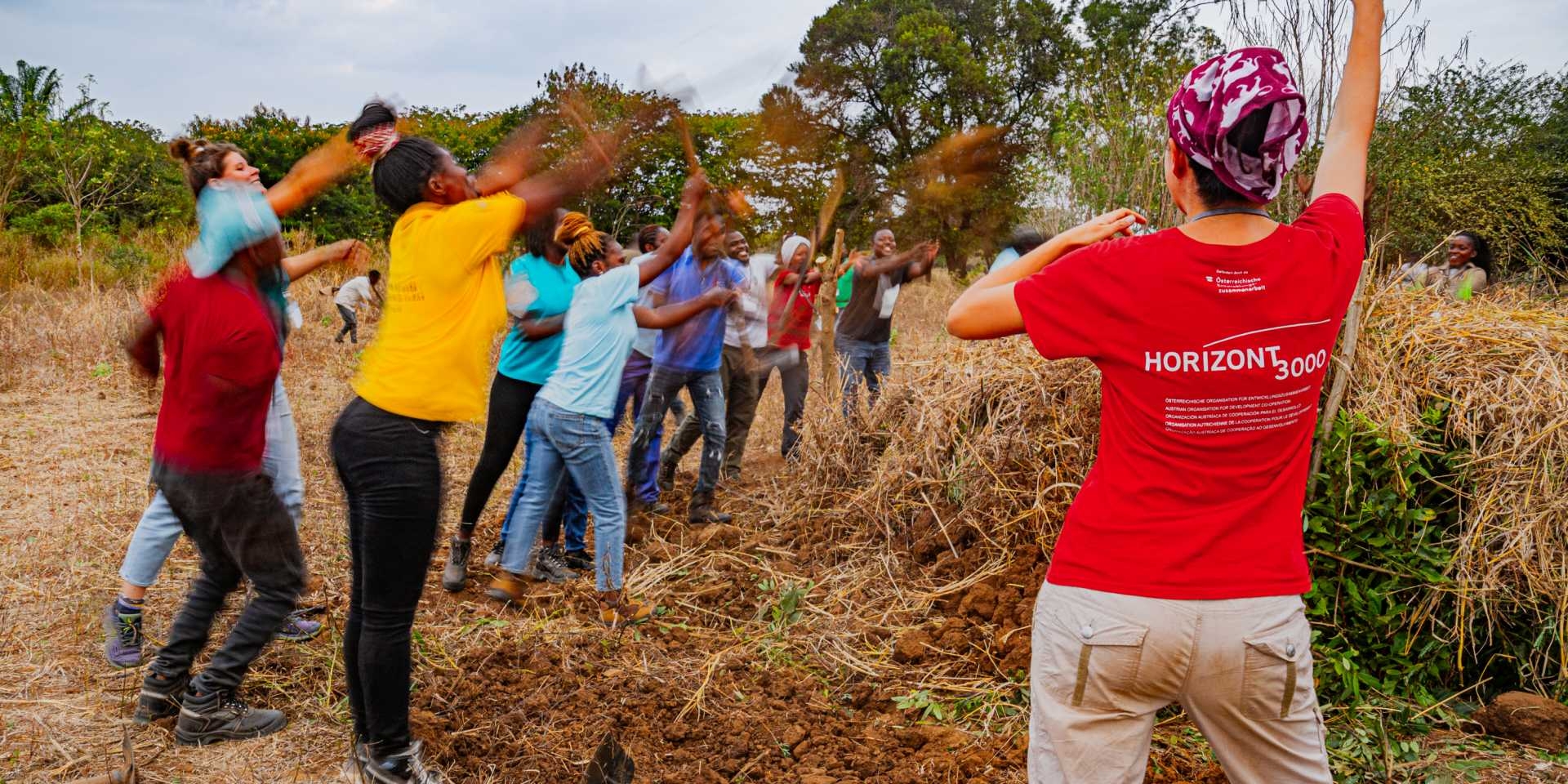
From August 6 to 8, 2024, the third in-person gathering of the Community of Practice (CoP) on Agroforestry Systems in Mozambique took place. The location: our new partner organisation Azada Verde's agroforestry field in Mangunde, Sofala Province, Mozambique. This event brought together 26 members from 10 different partner institutions and marked a significant increase in female technical participation, with 53% of attendees being women.
This training was organized by horizont3000, with Eva Niquice, Laís Nara, and Mareen Zeitelhofer as key facilitators, alongside Fernando Mangachaia from NGUNI INVESTIMENTO. The sessions were led by the Forest Engineer Domingos Vidhu, who brought many years of experience from various institutions including the Instituto Agrário de Chimoio (IAC) and Centro Florestal de Machipanda (Cefloma-UEM).
The training was sponsored by MISSIO which is an Austrian partner organization of horizont3000 through the knowhow3000 program, which is funded by the Austrian Development Agency (ADA).
Photos by Trevor de Jongh
The primary goal of the training was to empower technicians with best practices in plant management within Agroforestry Systems, focusing on biomass management, integrated pest management, and the production of organic fertilizers. Key takeaways were:
Why Agroforestry?
Agroforestry systems have the potential to address many of Mozambique's development challenges. By integrating trees into agricultural systems and caring for the soil through agroforestry techniques, the system can improve soil fertility, increase crop productivity, provide shade and windbreaks, and produce timber and other non-timber forest products.
This can help increase the quality of rural production and reduce dependence on unsustainable and destructive activities such as slash-and-burn agriculture and illegal logging. In addition, agroforestry systems can contribute to climate change mitigation and adaptation by sequestering carbon and providing resilience to extreme weather events.
Learn more about the CoP Agroforestry Systems in Mozambique on the Knowledge Hub (restricted access).
Many participants appreciated the opportunity to learn directly from experienced facilitators and to apply new techniques in the field/local context. The interactions and exchange of experiences among participants were particularly valuable, contributing to a riche learning environment.
Government representatives showed great interest in the hands-on learning and established new connections with other institutions within the CoP.
Overall, the participants expressed high satisfaction with the event's organization and content. However, there were noted areas for improvement, including the logistics of transportation and the management of time during sessions.
Looking ahead, the CoP plans to hold additional online meetings and trainings, focusing on topics such as the role of Agroforestry Systems in climate change mitigation, the economic impacts of Agroforestry Systems, and sustainable practices in arid zones. Future events will aim to involve more local government officials and community leaders to enhance the reach and impact of the CoP.
In summary, the August training was a pivotal moment for the CoP, marking a significant step in building expertise, fostering collaboration, and driving forward the goals of agroforestry in Mozambique. The enthusiasm and commitment of the participants suggest a bright future for the community’s ongoing development and impact.